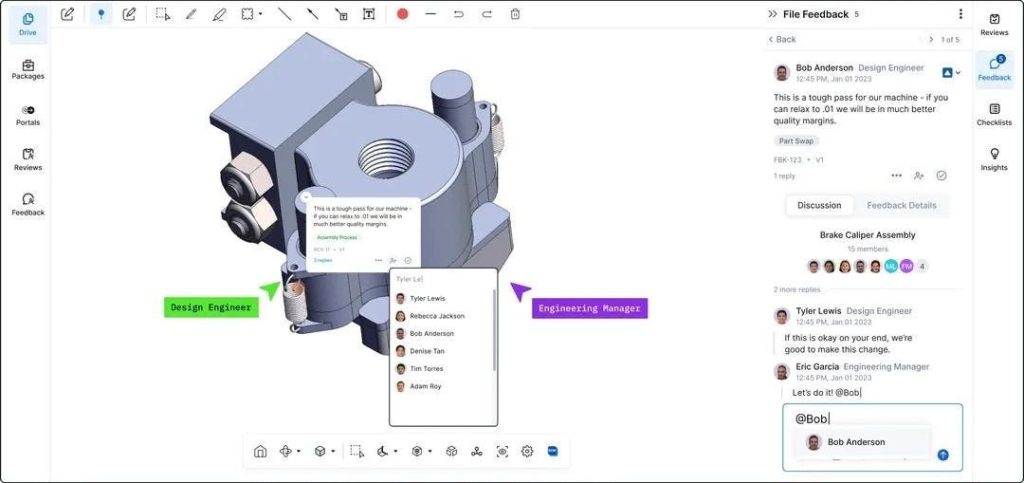CoLab Software’s recent $21 million Series B funding round, led by Insight Partners, signifies the failure of traditional Product Lifecycle Management (PLM) systems to keep up with the demands of modern collaboration in mechanical engineering. Despite being the backbone of product development for many years, systems like Siemens Teamcenter and PTC Windchill have struggled to meet the needs of globally dispersed engineering teams. Engineers often resort to inefficient methods like spreadsheets and email chains for design feedback, leading to potential errors and miscommunication.
The lack of collaborative experiences provided by traditional PLM systems has created an opportunity for companies like CoLab to step in with innovative “Systems of Engagement.” These tools enable teams to accelerate product development cycles, increase design quality, and reduce costs. CoLab’s success in this area, with customers like Ford Pro and Johnson Controls, has led to a 10x increase in Annual Recurring Revenue over the past 2 years, with a significant portion coming from customer retention.
The $21 million Series B funding for CoLab not only rewards their success but also signals the future of product development. By delivering a platform that enables true collaboration, these “Systems of Engagement” are positioning themselves at the forefront of a revolution in the industry. They are also well-positioned to incorporate recent advancements in generative AI into their offerings. Traditional PLM providers must take note and adapt to stay competitive in a market where agile and innovative players like CoLab are redefining how products are brought from idea to reality.
The funding round for CoLab is not just an endorsement of their innovative approach but is also a wake-up call for traditional PLM providers to evolve beyond being mere “Systems of Record.” As products become more complex and engineering teams more globally dispersed, there is a growing need for tools that facilitate efficient collaboration. CoLab and similar companies are meeting this need with platforms that not only streamline communication and feedback but also contribute to better overall product development outcomes.
The failure of traditional PLM systems to deliver collaborative experiences has been a significant factor in the success of companies like CoLab. By offering tools that enable faster development cycles, increased design quality, and cost savings, these companies are reshaping the product development landscape. With the backing of significant funding and a growing customer base, CoLab and others in this space are well-positioned to drive further innovation and reshape how products are designed and brought to market.
In conclusion, the $21 million Series B funding for CoLab Software represents more than just financial support for a successful company. It symbolizes a shift in the way product development is approached, with a focus on true collaboration and innovation. As traditional PLM providers struggle to keep pace with the demands of modern engineering teams, companies like CoLab are stepping in to fill the gap with platforms that enable faster, better, and more cost-effective product development. This funding round is a signal to the industry that the future belongs to those who can adapt and deliver the tools needed for success in the evolving landscape of mechanical engineering collaboration.


